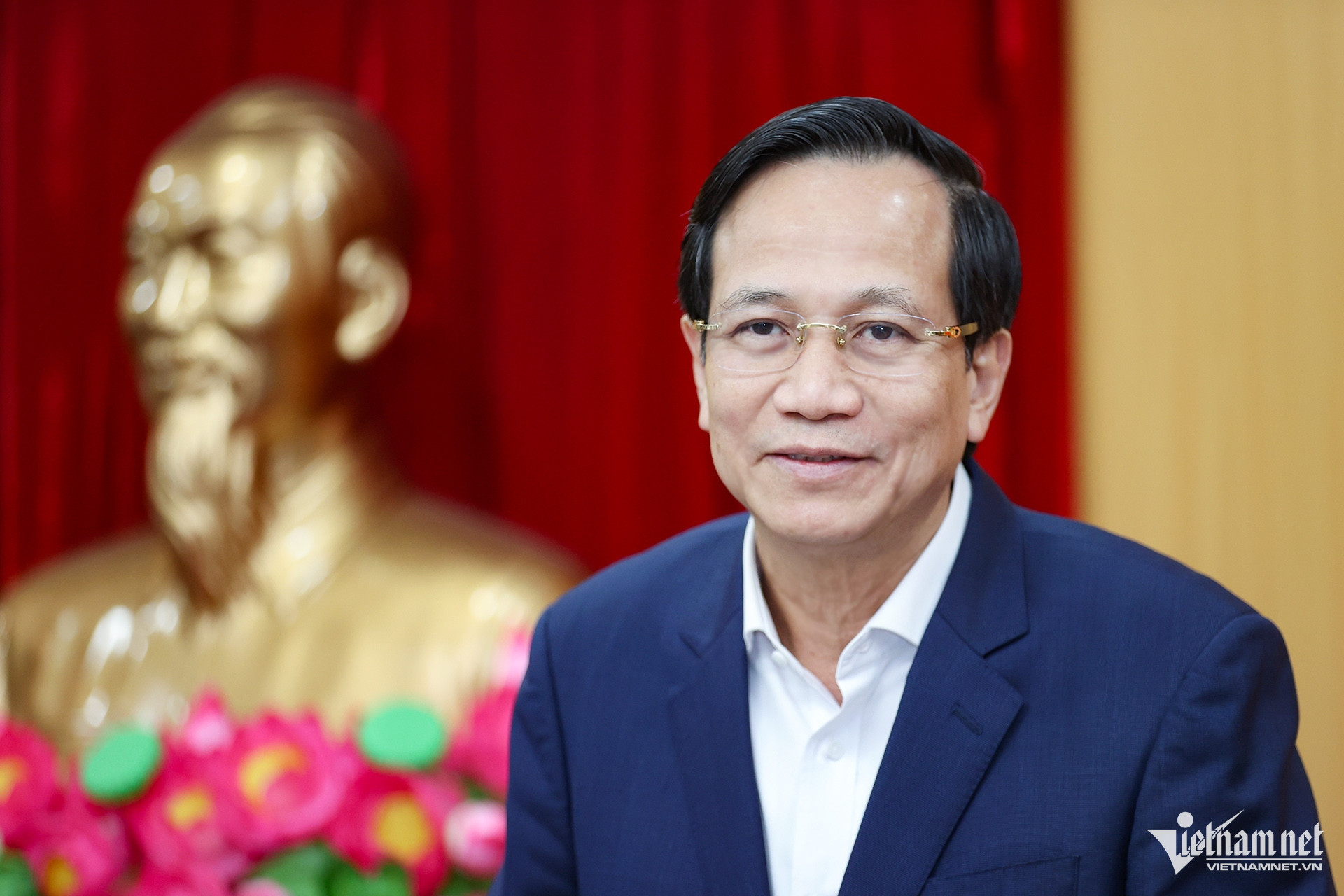The Ministry of Ethnic and Religious Affairs has set a fundamental goal of enhancing the material and spiritual lives of ethnic minorities while ensuring equality, unity, and respect for freedom of belief and non-belief.
Structural and organizational changes

On March 20, Nguyen Trong Nghia, Head of the Central Propaganda and Mass Mobilization Department, held a working session with the Party Standing Committee of the Ministry of Ethnic and Religious Affairs.
According to Deputy Minister Y Vinh Tor, the ministry was established on March 1, 2025, as one of the 17 ministries under the 15th National Assembly. It was formed by integrating the Committee for Ethnic Minority Affairs with functions related to religious affairs previously managed by the Ministry of Home Affairs.
Since its inception, the ministry has focused on streamlining its organizational structure. It has consolidated and reduced the number of departments from 16 to 13, including nine units handling state management functions and four public service units. The Government Committee for Religious Affairs operates as a bureau with seven subunits.
The ministry also reduced three departmental-level organizations (17.6%) and four divisional units (36.3%) while finalizing leadership appointments. As of now, it employs 998 personnel, including five senior leaders, 79 departmental leaders, 221 public officials, and 693 civil servants.
Promoting ethnic and religious harmony
During the meeting, Deputy Head Trieu Tai Vinh raised issues related to the frequent changes in religious beliefs among the Mong ethnic group, emphasizing the need for more research to understand this phenomenon. He also cautioned about commercialization in religion and the growing influence of superstitions within Buddhism.
Deputy Head Lai Xuan Mon stressed the importance of promoting digital literacy among ethnic minorities and enhancing the effectiveness of three national target programs, particularly in ethnic minority regions.

Nguyen Trong Nghia, Head of the Central Propaganda and Mass Mobilization Department, emphasized that when discussing ethnic and religious issues, it is crucial to consider historical and cultural contexts. He noted that ethnic minorities have significantly contributed to Vietnam’s struggles for independence and development.
“Education, advocacy, and public communication must remain top priorities,” Nghia stated. “We must align perceptions among officials and citizens to promote social harmony and sustainable development.”
He also highlighted the importance of modernizing public communication strategies, utilizing digital platforms to reach ethnic minority groups, and fostering stronger cultural exchange through tourism.
Strengthening unity and socio-economic development
Minister Dao Ngoc Dung reaffirmed the ministry’s commitment to improving the quality of life for ethnic minorities, especially those living in remote and disadvantaged areas. He emphasized the need to promote self-reliance, resilience, and sustainable development within these communities.

“Our primary goal is to ensure equal rights and economic inclusion while fostering inter-ethnic unity,” the minister said. “We must harmoniously address ethnic and religious issues, managing social challenges effectively to maintain national security and social stability.”
Minister Dung also pledged to work closely with relevant departments to develop comprehensive plans and solutions for ethnic and religious issues, promoting effective governance and community empowerment.
To realize these goals, the ministry will focus on:
Enhancing public awareness through education and advocacy.
Strengthening coordination with the Central Propaganda and Mass Mobilization Department.
Implementing socio-economic programs to reduce disparities among ethnic communities.
Promoting social inclusion and cultural preservation.
The minister emphasized that improving the material and spiritual well-being of ethnic minorities is not just a policy priority but a fundamental mission of the ministry.
He expressed hope for continued support and collaboration with other government agencies and local authorities to achieve sustainable development and inclusive growth.
Nguyen Thao